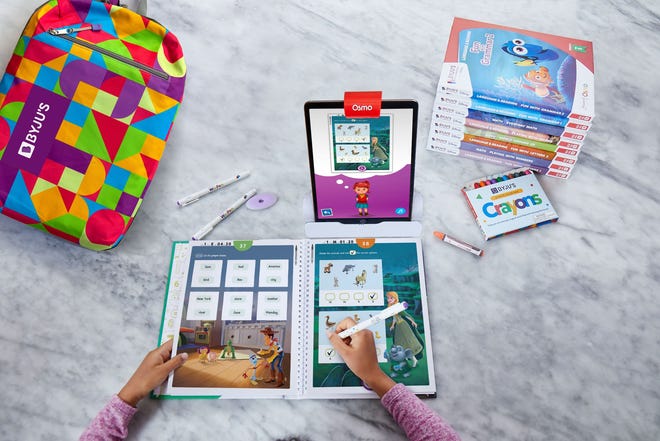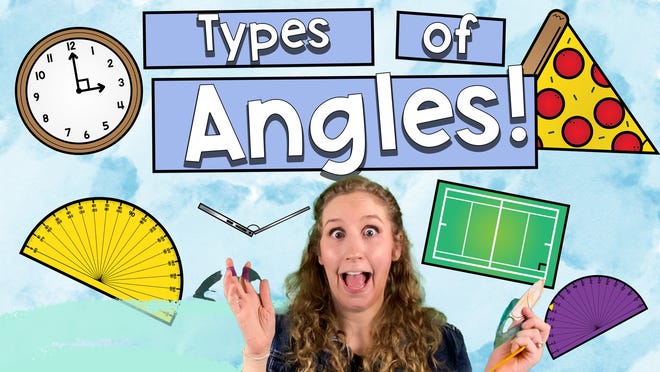
[ad_1]

While the world of educational programming and video games is vast, not all offerings are created equal. So how is a parent or teacher to choose?
Nadine Levitt, founder of the educational technology platform WURRLYedu, suggests considering “whether or not (the show or game) serves learning by inspiring creativity and curiosity, or replaces it.”
That said, the “educational” label isn’t everything, says Lisa Castaneda, co-founder and CEO of foundry10 education research organization. “People may wrongly assume that there is no learning value in games that aren’t marketed as educational,” she says. “I would argue a larger concern might be that games marketed as educational may not have the learning value parents hope they do.”
Lessons learned
It’s up to parents and teachers to help children make connections between their entertainment options and the lessons being taught. “When we select a game for learning, we should be thoughtful about our objectives, and then follow up with our kids to ensure that those objectives were met,” Castaneda says. So, if the game is skill-oriented and the objective is to practice and gain fluency, she says, check to see if those skills have improved.

Even without a specific goal in mind, Levitt says, reflecting back after the child watches a show is useful. “It can be as simple as asking what the biggest ‘aha! moment’ was for them and how it made them feel.”
Virtual reality options
Virtual reality tools can benefit from follow-up, too. “We had a teacher who used a virtual experience involving refugees to help students understand the experiences and perspectives of those who were trying to flee,” Castaneda says. The teacher set up a digital pen pal exchange with student refugees from that region, and the class raised funds for UNICEF.
Whatever show or game you choose, remember: The child has to actually like it — or they won’t use it. “Students today enjoy fast-paced shows with a lot of action going on,” says Caroline Farkas, math education specialist and founder of Doodles + Digits, which provides online resources for math education. “I usually recommend ‘bite-sized’ movies or shows to parents that will hold their child’s attention span.”
Keep your child engaged and entertained while increasing their knowledge with these recommended options:
Educational streaming:
Numberblocks (YouTube, Netflix, Amazon Prime)
Great for younger students, says math education specialist Caroline Farkas, because it uses many mathematical models and fully explains basic math concepts.
Cyberchase (PBSKids.org or local PBS channel)
This cartoon covers elementary math topics, includes real-life examples and has games and worksheets.
Waffles + Mochi (Netflix)
Produced by and starring Michelle Obama, this children’s cooking show takes a joyful approach to healthy eating.
Wild Kratts (PBS Kids and YouTube)
Animal lovers will enjoy learning about wildlife, conservation and science while watching the animated adventures of Chris and Martin Kratt.
SciShow Kids (YouTube)
Questions such as “What are pickles?” are cleverly answered by the host and her robot rat in creative short videos.
Educational online platforms:
Founder Nadine Levitt’s music education platform, designed to make creating and learning fun, is used by the Department of Education nationwide.

Doodles + Digits (Also available on YouTube and streaming on Highbrow)
Farkas created this channel to make math visual, relatable with real-life examples for elementary students.
Math Antics (Also available on YouTube)
This series of videos breaks down complex math concepts with a dose of humor.
Ask The StoryBots (Also available on Netflix)
This Emmy Award-winning show explains concepts such as how cellphones work and why we must brush our teeth.
Educational games
Sumdog (computer or app)
This program offers personalized math and spelling practice for grades K-5.
BYJU’s Magic Workbooks featuring Disney (app + hands-on activities with Osmo technology)
Math, language and reading skills are geared to pre-K through third grade.
Animal Crossing (Nintendo Switch)
With positive messages and role models, this game fosters creativity and promotes real-world conversations.
Animal Planet: Amazon Odyssey (virtual reality)
Users learn facts about more than a dozen animal species while navigating a boat down an Amazonian river and breaking camp in the rainforest.
[ad_2]
Source link